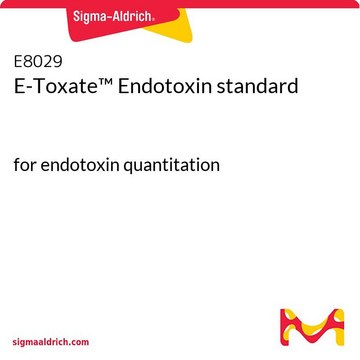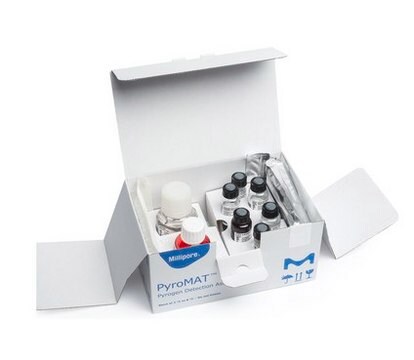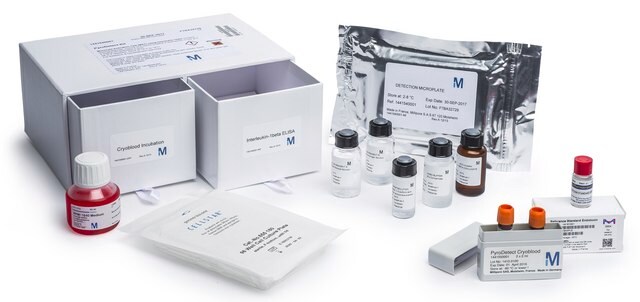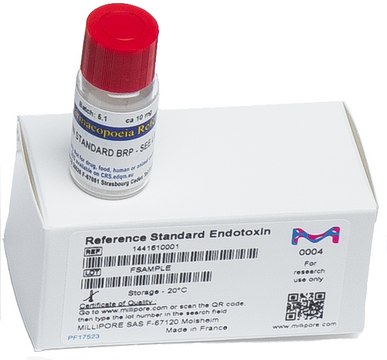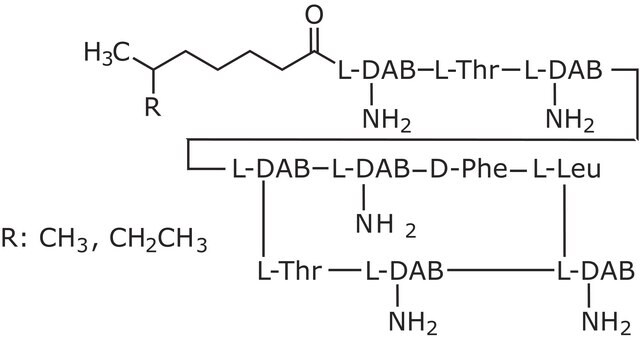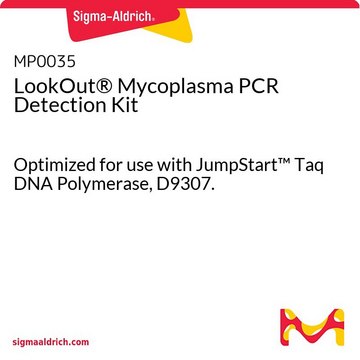ET0100
E-Toxate™ Kit
sufficient for 50 assays
Synonym(s):
Endotoxin detection kit
Sign Into View Organizational & Contract Pricing
All Photos(1)
About This Item
UNSPSC Code:
12352202
NACRES:
NA.83
Recommended Products
General description
E-Toxate™ Kit made from Limulus polyphemus amebocyte lysate (LAL) is developed for the detection and semi-quantitation of endotoxins.
Application
E-TOXATE Kit was used to determine the number of bacteria in suspensions of group B streptococci used to infect rats for models of sepsis.
E-Toxate™ Kit has been used for endotoxin detection:
- in chitosan and collagen solutions
- in C-reactive protein (CRP) samples
- in the ethanolic plant extracts from Tinospora cordifolia
Features and Benefits
- Highly sensitive to endotoxins
- Simple and rapid detection
- Cost-effective
Legal Information
E-Toxate is a trademark of Sigma-Aldrich Co. LLC
related product
Product No.
Description
Pricing
Storage Class Code
10 - Combustible liquids
Certificates of Analysis (COA)
Search for Certificates of Analysis (COA) by entering the products Lot/Batch Number. Lot and Batch Numbers can be found on a product’s label following the words ‘Lot’ or ‘Batch’.
Already Own This Product?
Find documentation for the products that you have recently purchased in the Document Library.
Customers Also Viewed
B Wangala et al.
Clinical and experimental immunology, 196(1), 111-122 (2018-12-19)
Mansonella perstans (Mp) filariasis is present in large populations in sub-Saharan Africa, and to what extent patent Mp infection modulates the expression of immunity in patients, notably their cellular cytokine and chemokine response profile, remains not well known. We studied
Ju-Suk Nam et al.
Journal of biomedical materials research. Part A, 105(3), 912-926 (2017-01-12)
Periprosthetic osteolysis remains the leading obstacle for total joint replacements. Primarily, it was thought that aseptic loosening is mainly caused by macrophage mediated inflammatory process arising from production of wear debris. The role of osteoclasts and its sequential bone resorption
Svenja Sladek et al.
Drug delivery and translational research, 8(5), 1421-1435 (2018-06-28)
Polyelectrolyte nanoparticle constructs (NPs) comprising salmon calcitonin (sCT), chitosan (CS), and hyaluronic acid (HA) were previously established as having anti-inflammatory potential when injected via the intra-articular (i.a.) route to a mouse model. We attempted to translate the formulation to a
Xue Q Liu et al.
Immunology, 125(1), 14-20 (2008-09-19)
The development and maintenance of memory B cells (MBC) is dependent on germinal centres (GC) with follicular dendritic cell (FDC) networks. We have previously shown that FDC networks within GC of the spleen express a novel ligand for CD38 and
Atsuko Hayashida et al.
The American journal of pathology, 174(2), 509-518 (2009-01-17)
In pneumonia caused by the bacterium Staphylococcus aureus, the intense inflammatory response that is triggered by this infection can lead to the development of lung injury. Little is known, however, about the impact of specific virulence factors on this inflammatory
Our team of scientists has experience in all areas of research including Life Science, Material Science, Chemical Synthesis, Chromatography, Analytical and many others.
Contact Technical Service
